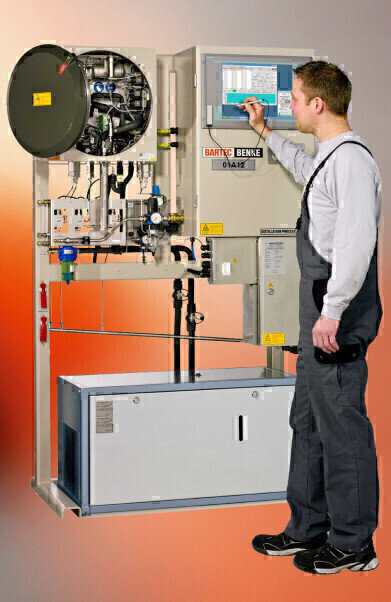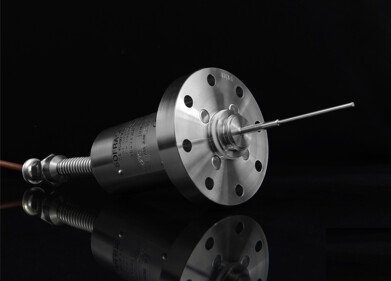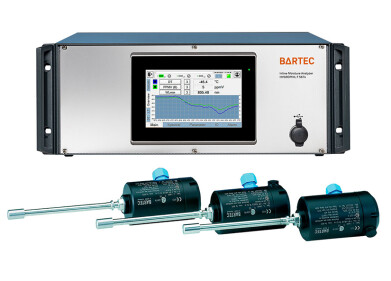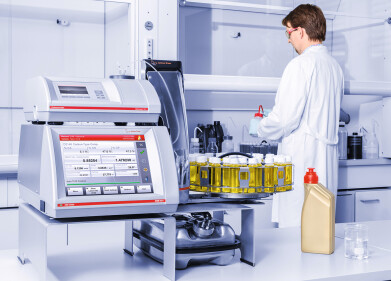Measurement and Testing
Process Analysers for Blending Applications
Apr 16 2014
To economically run processes in modern refineries, the installation of process analysers is required in order to continuously provide reliable measurement results in the shortest possible time. These measurement results represent the actual process status, and are the basis for any kind of process control and optimisation.
Process analysers have become an integral part of process control in modern refineries since the early 1970’s. Not only for final blending, but also upstream in the various process plants. These process analysers are not only used to provide status information about the process, but also provide valuable and necessary information that is required by modern process and optimisation packages.
The main reasons for refineries to consequently use process analysers are to fulfil environmental regulations, as well as to respond to market situations in terms of the open market for imported products, stagnating sales due to more efficient automobile engines and the market shifts between product classes and grades, and also to respond flexibly to the frequent changing of mixing recipes.
The refineries have identified the rationalisation of their processes as a significant contribution to mastering challenges, with automated test procedures using process analysers an integral part. This allows the gathering of specific properties of hydrocarbon products 24 hours a day, and the integration of this information into their process control and optimisation levels. The main aims are to minimise waste, maximise process efficiency and to guarantee a high quality product.
In the past, the use of process analysers was reduced to a direct process control, e.g. to check if the actual blend meets the required specifications. In the meanwhile, product blending in refineries is increasingly complex. This is due to the fact that the number of quality parameters to be met has significantly increased. Refineries also have to be able to react quickly to changes in the market situation.
The behaviour of product blending in refineries is rather nonlinear, so that it is often very difficult or even impossible to reach the quality targets within the economical constraints, without on-line adaption of the blend model/recipe during the blend. To do this, only process analysers are suitable to provide the necessary status information within the shortest possible time. The goals for any investment in process control and optimisation packages are, among other things, the market success, quality, and optimisation. However, only a full integration of instrumentation engineering and the consequent use of process analysers make implementation possible. The payback from the investment in analysers principally results from higher productivity, reduced giveaway, rapid adaption to market conditions, profit-optimal blending, lower manufacturing costs, lower labour costs and lower energy costs.
Blending in Tank Farms for Sales Purposes
In some refineries, the products from the different process units which are each different in their qualities and compositions are stored in intermediate storage tanks for further use. Depending on the required final product for sales, the specific final blending has to be carried out either into storage tanks or directly by “in-line” blending into e.g. a pipeline or vessel. To get the approval for selling the final product a number of quality parameters have to be observed and met. One of these parameters is usually the boiling characteristic of the final product which has to be carried out according to the ASTM D86 standard.
To minimise or possibly even to resist the laboratory analysis during the blending process refineries established the following procedure: Before starting the blending process a reference measurement is carried out with Protofuel. This Protofuel is used for the validation and approval of the analyser results. If the analyser is validated successfully, the blending starts. During the complete process, the results of the analyser are used to monitor and control the blending. At the end of the blending process, the analyser has to perform a further validation cycle with Protofuel. If the validation with Protofuel shows results within the given specification, the final product is approved and released for sale.
The precondition for the performance of such a procedure requires the use of appropriate and reliable analysers which are compliant to applicable standards. The redesigned Distillation Process Analyzer DPA-4 is the only ASTM D86 compliant process analyser available in the market. It is fully compliant to the laboratory method as it uses the same apparatus and operates according to the defined procedure, where a 100 ml sample is evaporated at a given distillation rate of 4 to 5 ml/min. Excellent repeatability and reproducibility for optimal process control is the result.
The Distillation Process Analyzer DPA-4 is suitable to determine each distillation point from the initial boiling point to the final boiling point within a range of typical 20°C to 420°C.
New features are implemented to shorten the overall cycle time. This is possible due to the optimisation of the heat transfer during the distillation, the reduced time to cool down the analyser, and implemented pressurised flushing which ensures a fast evacuation procedure to get the analyser ready for the next measuring cycle. An extra feature, the “N2-stirrer”, prevents the bumping and super-heating of the sample during the distillation. Reduced maintenance efforts are the result of the automatic decoking and fast clearing procedure which minimises the risk of plugging. Based on an established, standardised and robust design, the analyser is suitable for installation in hazardous areas and is available with different certificates. The analyser is equipped with state of the art communication interfaces and optionally available with customised sampling conditioning systems and chiller units.
Digital Edition
PIN 25.1 Feb/March
March 2024
In This Edition Safety - The technology behind the ION Science Tiger XT - Safety with ammonia and LOHCs as hydrogen carriers Analytical Instrumentation - Discussion on new tribology te...
View all digital editions
Events
Apr 24 2024 Mumbai, India
Apr 24 2024 Jakarta, Indonesia
Apr 28 2024 Montreal, Quebec, Canada
Apr 30 2024 Birmingham, UK
May 03 2024 Seoul, South Korea


















